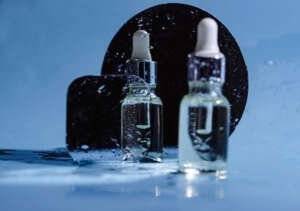Rotator cuff health is vital for shoulder mobility, especially for those prone to injuries due to sports, heavy lifting, or repetitive movements. While physical therapy and exercise are commonly recommended for shoulder health, the importance of hydration and hyaluronic acid (HA) is often overlooked. Both factors play a significant role in maintaining tendon strength, joint lubrication, and reducing inflammation.

The Significance of the Rotator Cuff
The rotator cuff is a group of four muscles and their tendons that stabilize and move the shoulder joint. These tendons endure stress daily, making them susceptible to injuries like tendinitis, tears, and impingement, especially in athletes or those engaged in repetitive shoulder activity. Supporting rotator cuff health is essential for preventing pain and maintaining shoulder function.
The Role of Hydration in Tendon Health
- Maintaining Tendon Structure: Tendons, including those in the rotator cuff, rely on an extracellular matrix rich in water-retaining molecules like proteoglycans. Hydration ensures elasticity and strength.
- Injury Prevention: Dehydrated tendons are less resilient to mechanical stress, making them prone to micro-tears and degeneration. Proper hydration helps tendons absorb stress effectively.
- Nutrient Delivery: Since tendons lack significant blood supply, hydration aids in nutrient transport and waste removal, supporting tissue repair.
Hyaluronic Acid (HA): A Lubricant for Tendon and Joint Health

- Natural Joint Lubricant: HA, found in synovial fluid and connective tissues, enhances joint flexibility and reduces friction between the tendons and surrounding structures.
- Anti-Inflammatory Effects: Research shows HA reduces cytokine activity, alleviating chronic inflammation that often accompanies rotator cuff injuries.
- Tendon Resilience: By maintaining smooth gliding of tendons, HA minimizes wear and tear, supporting long-term shoulder health.
Combining Hydration and Hyaluronic Acid for Better Shoulder Health
- Hydration Tips:
- Aim for 8–10 glasses of water daily.
- Include water-rich foods like watermelon, cucumbers, and leafy greens in your diet.
- Support HA Production:
- Consume HA-boosting foods like bone broth, soy products, and citrus fruits.
- HA supplements or injections can be beneficial for chronic shoulder issues under medical supervision.
- Low-Impact Mobility Exercises:
- Engage in yoga or swimming to improve joint flexibility and enhance fluid dynamics.
Scientific Backing for Hydration and HA in Tendon Health
- Hydration and Tendon Mechanics: Research in Scientific Reports highlights the link between water content and tendon viscoelasticity, confirming hydration’s role in tendon resilience.
- HA’s Anti-Inflammatory Role: Studies in Wounds emphasize HA’s capacity to manage inflammation and aid tissue regeneration.
- HA for Pain Relief: Clinical trials in Arthroscopy demonstrate the efficacy of HA injections in improving mobility and reducing pain in rotator cuff injuries.
Conclusion: Strengthening the Foundation
Hydration and hyaluronic acid form the foundation for maintaining rotator cuff health. Whether through increased water intake, HA-rich foods, or targeted treatments, these strategies enhance shoulder resilience and reduce the risk of injuries. A holistic approach combining nutrition, hydration, and physical therapy ensures long-term shoulder functionality and well-being.
Prioritize these strategies today and give your shoulders the support they deserve for a pain-free, active life.
References
- Lozano, P. F., Scholze, M., et al. (2019). Water-content-related alterations in tendon biomechanics. Scientific Reports.
- Litwiniuk, M., et al. (2016). Hyaluronic acid in inflammation and tissue regeneration. Wounds.
- Bansal, S., et al. (2023). Efficacy of hyaluronic acid in rotator cuff pathology: A meta-analysis. Journal of Orthopedic Reports.


